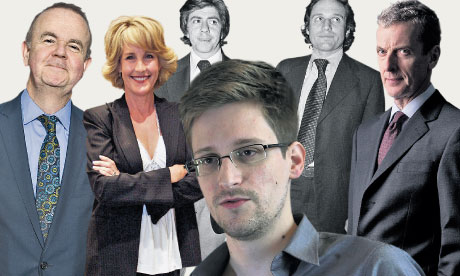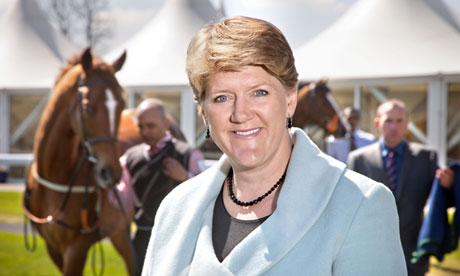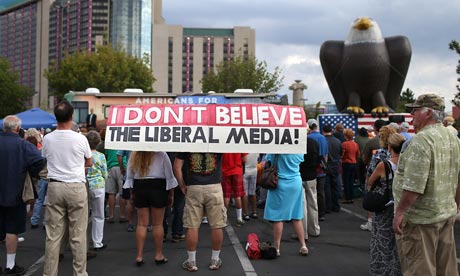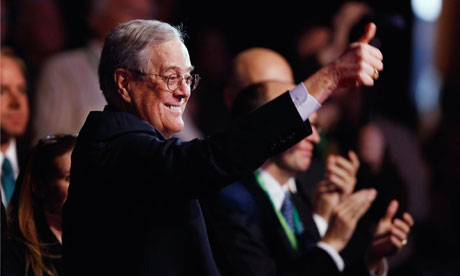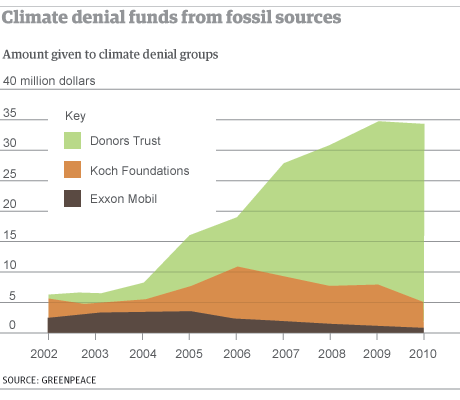For this 17th century outsider, philosophy is like a spiritual practice, whose goal is happiness and liberation
*
o
o Share
o Reddit
o Buzz up
*
Comments (…)
* Clare Carlisle
*
o Clare Carlisle
o guardian.co.uk, Monday 7 February 2011 09.30 GMT
o larger | smaller
o Article history
Spinoza memorial at the New Church in the Hague Spinoza memorial at the New Church in The Hague. Photograph: Dan Chung for the Guardian
Although Baruch Spinoza is one of the great thinkers of the European philosophical tradition, he was not a professional scholar – he earned his modest living as a lens grinder. So, unlike many thinkers of his time, he was unconstrained by allegiance to a church, university or royal court. He was free to be faithful to the pursuit of truth. This gives his philosophy a remarkable originality and intellectual purity – and it also led to controversy and charges of heresy. In the 19th century, and perhaps even more recently, "Spinozist" was still a term of abuse among intellectuals.
In a sense, Spinoza was always an outsider – and this independence is precisely what enabled him to see through the confusions, prejudices and superstitions that prevailed in the 17th century, and to gain a fresh and radical perspective on various philosophical and religious issues. He was born, in 1632, to Jewish Portuguese parents who had fled to Amsterdam to escape persecution, so from the very beginning he was never quite a native, never completely at home. Although Spinoza was an excellent student in the Jewish schools he attended, he came to be regarded by the leaders of his community as a dangerous influence. At the age of 24 he was excluded from the Amsterdam synagogue for his "intolerable" views and practices.
Spinoza's most famous and provocative idea is that God is not the creator of the world, but that the world is part of God. This is often identified as pantheism, the doctrine that God and the world are the same thing – which conflicts with both Jewish and Christian teachings. Pantheism can be traced back to ancient Greek thought: it was probably advocated by some pre-Socratic philosophers, as well as by the Stoics. But although Spinoza – who admired many aspects of Stoicism – is regarded as the chief source of modern pantheism, he does, in fact, want to maintain the distinction between God and the world.
His originality lies in the nature of this distinction. God and the world are not two different entities, he argues, but two different aspects of a single reality. Over the next few weeks we will examine this view in more detail and consider its implications for human life. Since Spinoza presents a radical alternative to the Cartesian philosophy that has shaped our intellectual and cultural heritage, exploring his ideas may lead us to question some of our deepest assumptions.
One of the most important and distinctive features of Spinoza's philosophy is that it is practical through and through. His ideas are never merely intellectual constructions, but lead directly to a certain way of life. This is evidenced by the fact that his greatest work, which combines metaphysics, theology, epistemology, and human psychology, is called Ethics. In this book, Spinoza argues that the way to "blessedness" or "salvation" for each person involves an expansion of the mind towards an intuitive understanding of God, of the whole of nature and its laws. In other words, philosophy for Spinoza is like a spiritual practice, whose goal is happiness and liberation.
The ethical orientation of Spinoza's thought is also reflected in his own nature and conduct. Unlike most of the great philosophers, Spinoza has a reputation for living an exemplary, almost saintly life, characterised by modesty, gentleness, integrity, intellectual courage, disregard for wealth and a lack of worldly ambition. According to Bertrand Russell, Spinoza was "the noblest and most lovable of the great philosophers". Although his ideas were despised by many of his contemporaries, he attracted a number of devoted followers who gathered regularly at his home in Amsterdam to discuss his philosophy. These friends made sure that Spinoza's Ethics was published soon after his death in 1677.
Spinoza, part 2: Miracles and God's will
Spinoza's belief that miracles were an unexplained act of nature, not proof of God, proved dangerous and controversial
*
o
o Share
o Reddit
o Buzz up
*
Comments (…)
* Clare Carlisle
*
o Clare Carlisle
o guardian.co.uk, Monday 14 February 2011 09.00 GMT
o larger | smaller
o Article history
At the heart of Baruch Spinoza's philosophy is a challenge to the traditional Judeo-Christian view of the relationship between God and the world. While the Hebrew Bible and the Christian scriptures share a conception of God as the creator of the natural world and the director of human history, Spinoza argues that everything that exists is an aspect of God that expresses something of the divine nature. This idea that God is not separate from the world is expounded systematically in the Ethics, Spinoza's magnum opus. However, a more accessible introduction to Spinoza's view of the relationship between God and nature can be found in his discussion of miracles in an earlier text, the Theologico-Political Treatise. This book presents an innovative interpretation of the bible that undermines its authority as a source of truth, and questions the traditional understanding of prophecy, miracles and the divine law.
In chapter six of the Theologico-Political Treatise, Spinoza addresses the "confused ideas of the vulgar" on the subject of miracles. Ordinary people tend to regard apparently miraculous events – phenomena that seem to interrupt and conflict with the usual order of nature – as evidence of God's presence and activity. In fact, it is not just "the vulgar" who hold this view: throughout history, theologians have appealed to miracles to justify religious belief, and some continue to do so today.
For Spinoza, however, talk of miracles is evidence not of divine power, but of human ignorance. An event that appears to contravene the laws of nature is, he argues, simply a natural event whose cause is not yet understood. Underlying this view is the idea that God is not a transcendent being who can suspend nature's laws and intervene in its normal operations. On the contrary, "divine providence is identical with the course of nature". Spinoza argues that nature has a fixed and eternal order that cannot be contravened. What is usually, with a misguided anthropomorphism, called the will of God is in fact nothing other than this unchanging natural order.
From this it follows that God's presence and character is revealed not through apparently miraculous, supernatural events, but through nature itself. As Spinoza puts it: "God's nature and existence, and consequently His providence, cannot be known from miracles, but can all be much better perceived from the fixed and immutable order of nature."
Of course, this view has serious consequences for the interpretation of scripture, since both the Old and New Testaments include many descriptions of miraculous events. Spinoza does not simply dismiss these biblical narratives, but he argues that educated modern readers must distinguish between the opinions and customs of those who witnessed and recorded miracles, and what actually happened. Challenging the literal interpretation of scripture that prevailed in his times, Spinoza insists that "many things are narrated in Scripture as real, and were believed to be real, which were in fact only symbolic and imaginary".
This may seem reasonable enough to many contemporary religious believers, but Spinoza's attitude to the Bible was far ahead of its time. Today we take for granted a certain degree of cultural relativism, and most of us are ready to accept that ancient peoples understood the world differently from us, and therefore had different ideas about natural and divine causation. When it was first published in 1670, however, the Theologico-Political Treatise provoked widespread protest and condemnation. In fact, it was this reaction that made Spinoza decide to delay publication of the Ethics until after his death, to avoid more trouble.
But what are we to make of Spinoza's claim that God's will and natural law are one and the same thing? There are different ways to interpret this idea, some more conducive to religious belief than others. On the one hand, if God and nature are identical then perhaps the concept of God becomes dispensable. Why not simply abandon the idea of God altogether, and focus on improving our understanding of nature through scientific enquiry? On the other hand, Spinoza seems to be suggesting that God's role in our everyday lives is more constant, immediate and direct than for those who rely on miraculous, out-of-the-ordinary events as signs of divine activity.
And of course, the idea that the order of nature reveals the existence and essence of God leads straight to the view that nature is divine, and should be valued and even revered as such. In this way, Spinoza was an important influence on the 19th-century Romantic poets. Indeed, Spinoza's philosophy seems to bring together the Romantic and scientific worldviews, since it gives us reason both to love the natural world, and to improve our understanding of its laws.
Spinoza, part 3: What God is not
In his Ethics, Spinoza wanted to liberate readers from the dangers of ascribing human traits to God
*
o
o Share
o Reddit
o Buzz up
*
Comments (…)
* Clare Carlisle
*
o Clare Carlisle
o guardian.co.uk, Monday 21 February 2011 08.30 GMT
o larger | smaller
o Article history
Spinoza's Ethics is divided into five books, and the first of these presents an idiosyncratic philosophical argument about the existence and nature of God. We'll examine this in detail next week, but first we need to look more closely at how the Ethics challenges traditional Judeo-Christian belief in God.
The view that Spinoza wants to reject can be summed up in one word: anthropomorphism. This means attributing human characteristics to something non-human – typically, to plants or animals, or to God. There are several important implications of Spinoza's denial of anthropomorphism. First, he argues that it is wrong to think of God as possessing an intellect and a will. In fact, Spinoza's God is an entirely impersonal power, and this means that he cannot respond to human beings' requests, needs and demands. Such a God neither rewards nor punishes – and this insight rids religious belief of fear and moralism.
Second, God does not act according to reasons or purposes. In refusing this teleological conception of God, Spinoza challenged a fundamental tenet of western thought. The idea that a given phenomenon can be explained and understood with reference to a goal or purpose is a cornerstone of Aristotle's philosophy, and medieval theologians found this fitted very neatly with the biblical narrative of God's creation of the world. Aristotle's teleological account of nature was, then, adapted to the Christian doctrine of a God who made the world according to a certain plan, analogous to a human craftsman who makes artefacts to fulfil certain purposes. Typically, human values and aspirations played a prominent role in these interpretations of divine activity.
Spinoza concludes book one of the Ethics by dismissing this world view as mere "prejudice" and "superstition". Human beings, he suggests, "consider all natural things as means to their own advantage", and because of this they believe in "a ruler of nature, endowed with human freedom, who had taken care of all things for them, and made all things for their use". Moreover, people ascribe to this divine ruler their own characters and mental states, conceiving God as angry or loving, merciful or vengeful. "So it has happened that each person has thought up from his own temperament different ways of worshiping God, so that God might love him above all others, and direct the whole of nature according to the needs of his blind desire and insatiable greed," writes Spinoza.
It is interesting to compare this critique of religious "superstition" with the views of the 18th-century Scottish philosopher David Hume. In his Dialogues Concerning Natural Religion, Hume challenges the popular belief in a creator God – and he also, elsewhere, undermines appeals to miracles as evidence of divine activity. Although Hume seems to echo Spinoza on these points, there is a crucial difference between the two philosophers. Hume thinks that many aspects of Christian belief are silly and incoherent, but his alternative to such "superstition" is a healthy scepticism, which recognises that religious doctrines cannot be justified by reason or by experience. His own position is rather ambiguous, but it involves a modest and pragmatic attitude to truth and seems to lead to agnosticism.
Spinoza, on the other hand, thinks that there is a true conception of God which is accessible to human intelligence. He argues that misguided religious beliefs are dangerous precisely because they obscure this truth, and thus prevent human beings from attaining genuine happiness, or "blessedness". There is, therefore, more at stake in Spinoza's critique of popular superstition than in Hume's. For Hume, religious believers are probably wrong, but the existential consequences of their foolishness might not be particularly serious. Spinoza, by contrast, wants to liberate his readers from their ignorance in order to bring them closer to salvation.
So Spinoza is not simply an atheist and a critic of religion, nor a sceptical agnostic. On the contrary, he places a certain conception of God at the heart of his philosophy, and he describes the ideal human life as one devoted to love of this God. Moreover, while Spinoza is critical of superstition, he is sympathetic to some aspects of Jewish and Christian teaching. In particular, he argues that Jesus had a singularly direct and immediate understanding of God, and that it is therefore right to see him as the embodiment of truth, and a role model for all human beings.
Spinoza, part 4: All there is, is God
Being infinite and eternal, God has no boundaries, argues Spinoza, and everything in the world must exist within this God
*
o
o Share
o Reddit
o Buzz up
*
Comments (…)
* Clare Carlisle
*
o Clare Carlisle
o guardian.co.uk, Monday 28 February 2011 10.00 GMT
o larger | smaller
o Article history
So far in this series I've focused on Spinoza's critique of the religious and philosophical world view of his time. But what does he propose in place of anthropomorphic, anthropocentric belief in a transcendent creator God?
Spinoza begins his Ethics by defining some basic philosophical terms: substance, attribute, and mode. In offering these definitions, he is actually attempting a radical revision of the philosophical vocabulary used by Descartes, the leading thinker of his time, to conceptualise reality. When we understand these terms properly, argues Spinoza, we have to conclude that there exists only one substance – and that this is God.
Substance is a logical category that signifies independent existence: as Spinoza puts it, "by substance I understand what is conceived through itself". By contrast, attributes and modes are properties of a substance, and are therefore logically dependent on this substance. For example, we might regard a particular body as a substance, and this body is not conceptually dependent on anything else. But the body's properties, such as its weight and its colour and its shape, are qualities that cannot be conceived to exist in isolation: they must be the weight, colour and shape of a certain body.
Descartes's world view draws on Aristotelian metaphysics and scholastic theology in conceiving individual entities as distinct substances. Human beings, for example, are finite substances, while God is a special substance which is infinite and eternal. In fact, Descartes thought that each human being was composed of two substances: a mind, which has the principal attribute of thought; and a body, which has the principal attribute of extension, or physicality. This view famously leads to the difficult question of how these different substances could interact, known as the "mind-body problem".
The philosophical terminology of substance, attribute and mode makes all this sound rather technical and abstract. But Cartesian metaphysics represents a way of thinking about the world, and also about ourselves, shared by most ordinary people. We see our world as populated by discrete objects, individual things – this person over here, that person over there; this computer on the table; that tree outside, and the squirrel climbing its trunk; and so on. These individual beings have their own characteristics, or properties: size, shape, colour, etc. They might be hot or cold, quiet or noisy, still or in motion, and such qualities can be more or less changeable. This way of conceptualising reality is reflected in the structure of language: nouns say what things are, adjectives describe how they are, and verbs indicate their actions, movements and changing states. The familiar distinction between nouns, adjectives and verbs provides an approximate guide to the philosophical concepts of substance, mode and attribute.
If, as Spinoza argues, there is only one substance – God – which is infinite, then there can be nothing outside or separate from this God. Precisely because God is a limitless, boundless totality, he must be an outsideless whole, and therefore everything else that exists must be within God. Of course, these finite beings can be distinguished from God, and also from one another – just as we can distinguish between a tree and its green colour, and between the colour green and the colour blue. But we are not dealing here with the distinction between separate substances that can be conceived to exist independently from one another.
Again, this is rather abstract. As Aristotle suggested, we cannot think without images, and I find it helpful to use the image of the sea to grasp Spinoza's metaphysics. The ocean stands for God, the sole substance, and individual beings are like waves – which are modes of the sea. Each wave has its own shape that it holds for a certain time, but the wave is not separate from the sea and cannot be conceived to exist independently of it. Of course, this is only a metaphor; unlike an infinite God, an ocean has boundaries, and moreover the image of the sea represents God only in the attribute of extension. But maybe we can also imagine the mind of God – that is to say, the infinite totality of thinking – as like the sea, and the thoughts of finite beings as like waves that arise and then pass away.
Spinoza's world view brings to the fore two features of life: dependence and connectedness. Each wave is dependent on the sea, and because it is part of the sea it is connected to every other wave. The movements of one wave will influence all the rest. Likewise, each being is dependent on God, and as a part of God it is connected to every other being. As we move about and act in the world, we affect others, and we are in turn affected by everything we come into contact with.
This basic insight gives Spinoza's philosophy its religious and ethical character. In traditional religion, dependence and connectedness are often expressed using the metaphor of the family: there is a holy father, and in some cases a holy mother; and members of the community describe themselves as brothers and sisters. This vocabulary is shared by traditions as culturally diverse as Christianity, Buddhism and Islam. For Spinoza, the familial metaphor communicates a truth that can also be conveyed philosophically – through reason rather than through an image.
Spinoza, part 5: On human nature
We are not autonomous individuals but part of a greater whole, says Spinoza, and there is no such thing as human free will
*
o
o Share
o Reddit
o Buzz up
*
Comments (…)
* Clare Carlisle
*
o Clare Carlisle
o guardian.co.uk, Monday 7 March 2011 09.00 GMT
o larger | smaller
o Article history
Last week, we examined Spinoza's metaphysics, looking at how his radical reinterpretation of the philosophical terminology of substance, attribute and mode produces a new vision of reality. According to Spinoza, only God can be called a substance – that is to say, an independently existing being – and everything else is a mode of this single substance. But what does this mean for us?
One of the central questions of philosophy is: what is a human being? And this question can be posed in a more personal way: who am I? As we might by now expect, Spinoza's view of the human being challenges commonsense opinions as well as prevailing philosophical and religious ideas. We are probably inclined to think of ourselves as distinct individuals, separate from other beings. Of course, we know that we have relationships to people and objects in the world, but nevertheless we see ourselves as autonomous – a view that is reflected in the widelyheld belief that we have free will. This popular understanding of the human condition is reflected in Cartesian philosophy, which conceives human beings as substances. In fact, Descartes thought that human beings are composed of two distinct substances: a mind and a body.
For Spinoza, however, human beings are not substances, but finite modes. (Last week, I suggested that a mode is something like a wave on the sea, being a dependent, transient part of a far greater whole.) This mode has two aspects, or attributes: extension, or physical embodiment; and thought, or thinking. Crucially, Spinoza denies that there can be any causal or logical relationships across these attributes. Instead, he argues that each attribute constitutes a causal and logical order that fully expresses reality in a certain way. So a human body is a physical organism which expresses the essence of that particular being under the attribute of extension. And a human mind is an intellectual whole that expresses this same essence under the attribute of thinking.
But this is not to suggest that the mind and the body are separate entities – for this would be to fall back into the Cartesian view that they are substances. On the contrary, says Spinoza, mind and body are two aspects of a single reality, like two sides of a coin. "The mind and the body are one and the same individual, which is conceived now under the attribute of thought, now under the attribute of extension," he writes in book two of the Ethics. And for this reason, there is an exact correspondence between them: "The order and connection of ideas is the same as the order and connection of things." In fact, each human mind involves awareness of a human body.
This way of thinking has some important consequences. One of the most obvious is that it undermines dualistic and reductionist accounts of the human being. Descartes's mind-body dualism involves the claim that we are, in essence, thinking beings – that the intellectual should be privileged above the physical, reason above the body. Conversely, modern science often regards the human being as primarily a physical entity, and attempts to reduce mental activity to physical processes. In Spinoza's view, however, it is incoherent to attempt to explain the mental in terms of the physical, or vice versa, because thinking and extension are distinct explanatory orders. They offer two alternative ways of describing and understanding our world, and ourselves, which are equally complete and equally legitimate.
Another important consequence of Spinoza's account of the human being is his denial of free will. If we are modes rather than substances, then we cannot be self-determining. The human body is part of a network of physical causality, and the human mind is part of a network of logical relations. In other words, both our bodily movements and our thinking are constrained by certain laws. Just as we cannot defeat the law of gravity, so we cannot think that 2 + 2 = 5, or that a triangle has four sides.
Spinoza's criticism of the popular belief in free will is rather similar to his analysis of belief in miracles in the Theologico-Political Treatise, which we looked at a few weeks ago. There, we may recall, he argued that people regard events as miraculous and supernatural when they are ignorant of their natural causes. Likewise, human actions are attributed to free will when their causes are unknown: "That human freedom which all men boast of possessing … consists solely in this, that men are conscious of their desire and unaware of the causes by which they are determined." For Spinoza, belief in free will is just as much a sign of ignorance and superstition as belief in miracles worked by divine intervention.

